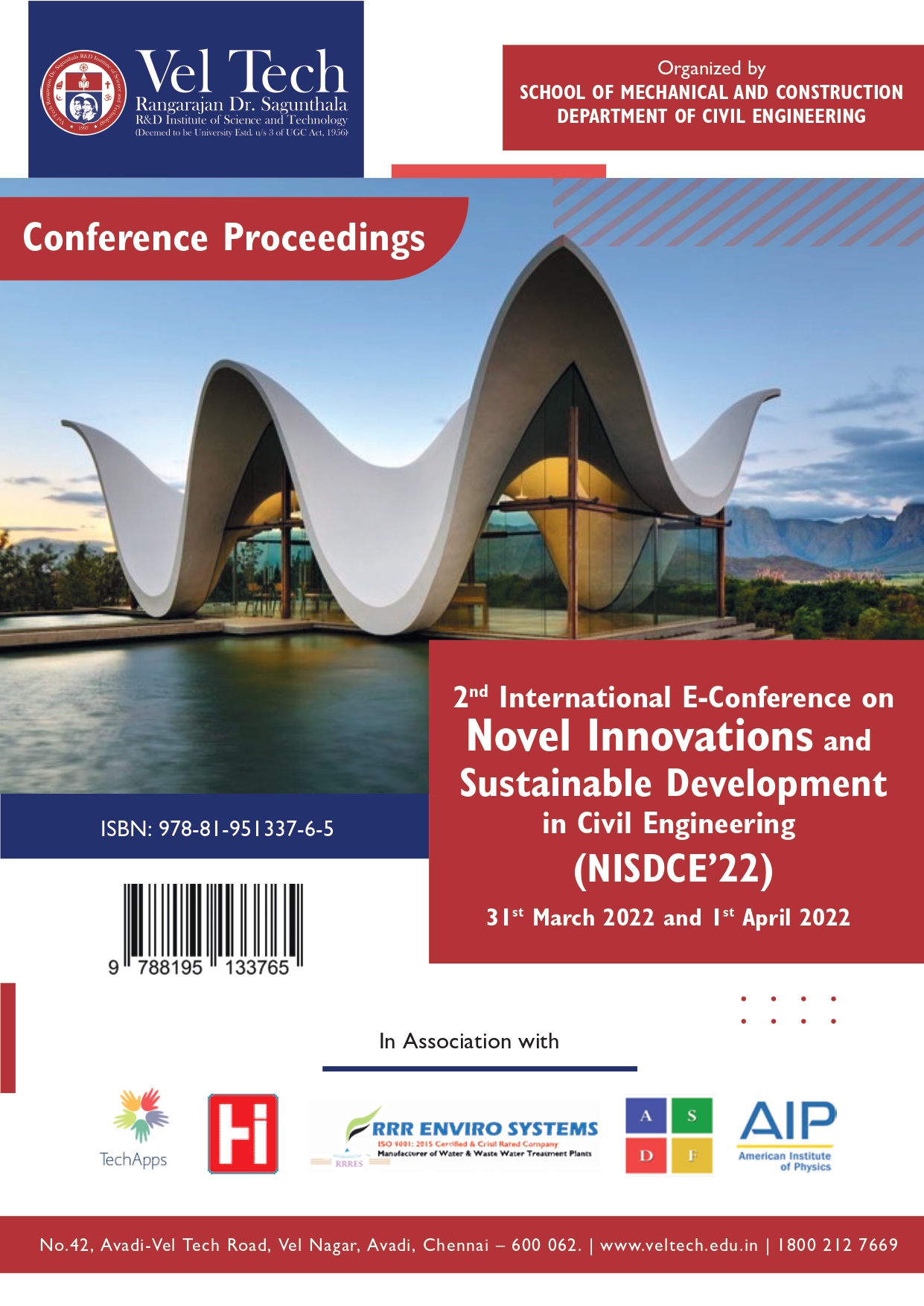- Publication Meta:Value
- Short Title:NISDCE 2022
- Publisher:ASDF, India
- ISBN 13:978-81-951337-6-5
- ISBN 10:81-951337-6-2
- Language:English
- Type:Hard Bound - Printed Book
- Copyrights:Veltech, Chennai, India
- Editor-in-Chief:A Geetha Selvarani
- Conference Dates:31 March & 1 April 2022
- Venue Country:Chennai, India
- Submitted Papers:211
- Acceptance Rate:46.72%
- Website:www.veltech.edu.in
Welcome to ASDF Electronic Digital Library!
NISDCE 2022
NISDCE 2022
International e-Conference on Novel Innovations and Sustainable Development in Civil Engineering 2022
Paper 030
INFLUENCE OF APPLICATION OF GEOSYNTHETIC IN CONSTRUCTION OF COBBLESTONE PAVEMENT IN ETHIOPIA
Henok Abera Yigzaw1, Vijayakumar Nagappa2
1Lecturer, Department of Civil Engineering, Kombolcha Institute of Technology, Wollo University, Kombolcha, Ethiopia.
,2Lecturer, Department of Civil Engineering, Kombolcha Institute of Technology, Wollo University, Kombolcha, Ethiopia.
Abstract
Ethiopia is facing challenges in the road construction industry, particularly in the construction of cobblestone pavements. Ethiopia is almost entirely covered by weak black cotton soil, which has more swelling and shrinkage characteristics, and as a result, failures in the construction of cobblestone pavements have been identified. In geotechnical applications, synthetic products are commonly used to change the physical and engineering properties of the weak soil. Geosynthetic refers specifically to permeable textile fabric material that can be used as a geotechnical engineering soil material. The main goal of this study is to improve the weak formations of sub grade black cotton soils in laying cobblestone road way construction by using geosynthetic fabrics made of polypropylene, polyester, or polyethylene materials and to strengthen the stability of the cobblestone pavement subgrade, maintain the proper evenness of the cobblestone pavement, minimize the cost of patch work maintenance, and avoid weeds between the cobblestone. Many developed countries use geosynthetics in road construction, erosion control, soil consolidation, slope stabilization, and other applications. Because Ethiopia is a developing country, we have the advantage of using geosynthetics for the reinforcement of subgrade weak black cotton soil in pavement construction.
Keywords
Author's Profile
Author profile can be generated and linked through our partners World Book of Researchers. To include your profile online Click Here. After it is approved, please email to edlib @ asdf.res.in to create a link with all the papers.
e-AID
2022.nisdce.030
Cite this Article as Follows
Henok Abera Yigzaw & Vijayakumar Nagappa (2022). INFLUENCE OF APPLICATION OF GEOSYNTHETIC IN CONSTRUCTION OF COBBLESTONE PAVEMENT IN ETHIOPIA. In Proceedings of the International E-Conference on Novel Innovations and Sustainable Development in Civil Engineering 2022 (1st ed., Vol. 1, p. 30). London, GB: ASDF International.
© 2010 - by EDLIB . All rights reserved.

